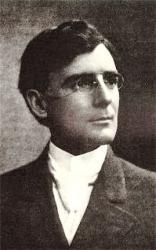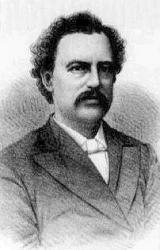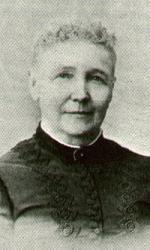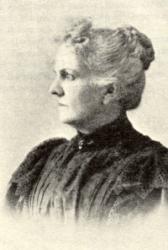Planning worship?
Check out our sister site, ZeteoSearch.org,
for 20+ additional resources related to your search.
- |
User Links
Person Results
‹ Return to hymnal






Export as CSV
John E. Gould

1821 - 1875 Person Name: J. E. Gould Hymnal Number: 92 Composer of "[Jesus, Savior, pilot me]" in Sermons in Song No. 2 John Edgar Gould USA 1821-1875. Born in Bangor, ME, he became a musician. He managed music stores in New York City and Philadelphia, PA., the latter with composer partner, William Fischer. He married Josephine Louisa Barrows, and they had seven children: Blanche, Marie, Ida, John, Josephine, Josephine, and Augusta. He compiled eight religious songbooks from 1846 thru 1869. He died while traveling in Algiers, Africa, and was buried in Philadelphia, PA.
John Perry
John E. Gould
George Kingsley
1811 - 1884 Person Name: G. Kingsley Hymnal Number: 90 Composer of "[How sweet the name of Jesus sounds]" in Sermons in Song No. 2 Born: July 7, 1811, Northampton, Massachusetts.
Died: March 14, 1884, Northampton, Massachusetts.
Kingsley played the organ at the Old South Church and Hollis Street Church in Boston, Massachusetts. He also taught music at Girard College in Philadelphia, Pennsylvania, served as music supervisor for public schools in Philadelphia, and compiled a number of music books, including:
Sunday School Singing Book, 1832
The Harmonist, 1833
The Social Choir, 1836
The Sacred Choir, 1838
The Harp of David, 1844
The Young Ladies’ Harp, 1847
Templi Carmina (Northampton, Massachusetts: 1853)
The Juvenile Choir, 1865
--www.hymntime.com/tch
George Kingsley
Edward F. Rimbault

1816 - 1876 Person Name: E. F. Rimbault Hymnal Number: 109 Composer of "[O happy day, that fixed my choice]" in Sermons in Song No. 2 Edward Francis Rimbault PhD LLD United Kingdom 1816-1876. Born in Soho, London, England, son of an organist and composer of French descent, he was taught music by his father., Samuel Wesley, and Wiliam Crotch. At age 16 he became organist of the Swiss Church in Soho. He later became organist at various churches, including St Peter’s, Vere Street, and St John’s Wood Presbyterian Church. He edited many collections of music, journals, and publications of music, and arranged music compositions. In addition to editing or arranging contemporary operas, he had a strong interest in editing or arranging earlier English music. He studied the musical treatises in the library of Archbishop Tenison, one of the oldest public libraries in London. In 1838, At age 22 he began lecturing about the history of English music, and was in much demand due to the interest aroused. He did editorial work for the Percy Society, the Camden Society, the Motet Society, and the Handel Society. For the latter he edited the “Messiah”, “Saul”, and “Samson” He was elected a Fellow of the Society of Antiquaries, and was granted membership in the Academy of Music in Stockholm, Sweden. Gottingen University also conferred upon him a PhD. His reputation was such that he was offered a teaching position at Harvard University in the U.S., which he turned down. In 1848 he was given an honorary degree by the University of Oxford. In 1849 he published a collection of English nursery rhymes and the tunes to which they were sung. Rimbault authored 76 books, a few named here include : “Bibliotheca madrigaliana” (1847); “The pianoforte” (1860); “Early English organ builders and their works” (1865). In 1855 he co-authored “The organ- its history and construction” with John Hopkins. He did a small amount of composing as well. He wrote an operetta in 1838, and a musical drama. He also composed a large number of pianoforte scores for operas by others. He was an admirable harmonium player. Traveling to various auctions for years, he accumulated a rare collection of books. After his death his extensive collection was auctioned off in 1877, with many items going to the British Library. About 300 items were sold to an individual, and upon his death in 1888, the ‘Drexel collection’ was bequeathed to the Lenox Library (precursor of the New York Public Library). Today, the collection is part of the Music Division of the NY Public Library for the Performing Arts. He was an author, editor, arranger, composer, lithographer, translator, scribe, adapter, and bookseller. He died at London, England. No information found regarding a family.
John Perry
Edward F. Rimbault
I. H. Meredith

1872 - 1962 Hymnal Number: 110 Composer of "[Glory be to the Father, and to the Son]" in Sermons in Song No. 2 Pseudonyms
Charles C. Ackley (taken from his wife’s name, Clarissa Ackley Cowan)
Broughton Edwards
Floyd Engle (from his address on Floyd Street in Englewood Cliffs, New Jersey)
Arthur Grantley
Bruce Kennedy
See also Ackley, Chas. C. 1872-1962
See also Edwards, Broughton
I. H. Meredith
Carrie E. Rounsefell
1861 - 1930 Hymnal Number: 54 Composer of "[It may not be on the mountain's height]" in Sermons in Song No. 2 Carrie Esther Parker Rounsefell USA 1862-1930. Born at Merrimack, NH, she grew up in Manchester, NH. She married William Rounsefell, a bookkeeper. She was known as a singing evangelist throughout New England and New York, where she toured with a small autoharp (zither). She died at Durham, ME.
John Perry
Carrie E. Rounsefell
W. Warren Bentley

Hymnal Number: 107 Composer of "[In the rifted Rock I'm resting]" in Sermons in Song No. 2
W. Warren Bentley
C. S. Kauffman
Person Name: C. S. K. Hymnal Number: 5 Author of "Abiding in Christ" in Sermons in Song No. 2 Early 20th Century
C. S. Kauffman
Harriet E. Jones

1823 - 1915 Hymnal Number: 82 Author of "Nobody Knows Like Jesus" in Sermons in Song No. 2 Harriet E. Rice Jones, 1823-1915
Born: April 18, 1823, Pompey Hollow, Onondaga County, New York.
Died: 1915, Binghamton, New York.
Buried: Oran Community Church Cemetery, Pompey, Onondaga County, New York.
Daughter of Eleazer Rice, Jones lived in Onondaga County, New York. Her girlhood was spent on a farm, receiving what education the country schools and one term at high school could provide. She was always fond of reading, and was a great singer, with a clear ringing voice. On July 7, 1844, she married a son of Rev. Zenas Jones; her husband died in 1879. Her song writing career began when her poetry came to the attention of Dr. M. J. Munger, who asked if she could write some Sunday school hymns for him. She went on to write for Daniel Towner, J. C. Ewing, the Fillmore brothers, and others.
--hymntime.com/tch
Harriet E. Jones
Chas. C. Ackley
Person Name: C. C. Ackley Hymnal Number: 25 Composer of "[Now the day is over]" in Sermons in Song No. 2 Pseudonym. See also Meredith, I. H.
Chas. C. Ackley
Laura E. Newell

1854 - 1916 Hymnal Number: 1 Author of "In the Sunlight" in Sermons in Song No. 2 Born: February 5, 1854, New Marlborough, Connecticut.
Died: October 13, 1916, Manhattan, Kansas.
Daughter of Mr. and Edward A. Pixley, but orphaned as an infant, Laura was adopted by her aunt, then Mrs. Hiram Mabie, who at the time lived in New York. In 1858, the Mabie family moved to a farm south of where Wamego, Kansas, now stands. Two years after the move, Mr. Mabie died, and his wife resumed teaching.
In 1860, Mrs. Mabie accepted a position in Topeka, Kansas, where she taught many years. Under her tutelage, Laura received her education. As early as age 12, Laura was writing rhymes, and two years later her poems began to appear in local newspapers. She had no thought of a literary career; she simply wrote to give vent to her poetical mind.
In 1871, Laura married Lauren Newell, a carpenter from Manhattan, Kansas. They had at least six children, and belonged to the Congregational denomination.
In 1873, Laura was listening to an address by a speaker who lamented the death of "genuine" hymns, and she resolved to try her hand in that line of work. That began a long period of writing songs, sacred and secular, services for all anniversary occasions, cantatas, adapting words to music, and music to words.
"Mrs. Newell is indeed a prolific writer. Her poems number in the thousands. She has had over eight hundred poems published in a single year, a most remarkable record. The great ease with which Mrs. Newell writes is one of her special gifts. Not long since an order, accompanied by music and titles, was sent her for eight poems to suit. At seven o’clock in the evening she sat down to her organ to catch the music. Then she went to her desk, and at ten o’clock the order was ready for the return mail. Her work pleased the publisher so well that he sent her an order for forty-eight additional poems. Mrs. Newell writes several hundred poems annually.
She is a very modest and unpretentious lady, and goes about her daily work as cheerfully as her poems advise others to do. The deeply religious character of the woman stands out boldly in nearly all her work. The next world is apparently as real to her as the present. Her heart is in her work, and to the end of life’s chapter, while able, may she wield her pen to tell the Story to dear to her heart, in verse and song." Hall, pp. 316-17
http://www.hymntime.com/tch/bio/n/e/w/newell_lep.htm
Laura E. Newell


 My Starred Hymns
My Starred Hymns


